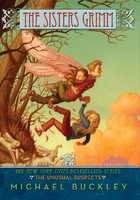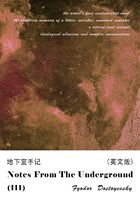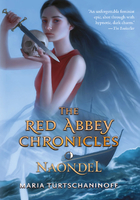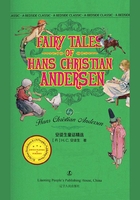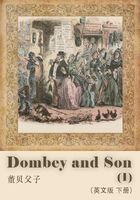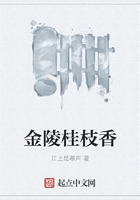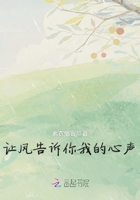SOME DAYS I don't remember my mother. I look at her photograph and she escapes me. Or I see her on a Sunday, after lunch, and we spend a pleasant afternoon, and when I leave I find she has run through me like water.
'Goodbye,' she says, already fading. 'Goodbye my darling girl,' and she reaches her soft old face up, for a kiss. It still puts me in such a rage. The way, when I turn away, she seems to disappear, and when I look, I see only the edges. I think I would pass her in the street, if she ever bought a different coat. If my mother committed a crime there would be no witnesses – she is forgetfulness itself.
'Where's my purse?' she used to say when we were children – or it might be her keys, or her glasses. 'Did anyone see my purse?' becoming, for those few seconds, nearly there, as she went from hall, to sitting room, to kitchen and back again. Even then we did not look at her but everywhere else: she was an agitation behind us, a kind of collective guilt, as we cast about the room, knowing that our eyes would slip over the purse, which was brown and fat, even if it was quite clearly there.
Then Bea would find it. There is always one child who is able, not just to look, but also to see. The quiet one.
'Thank you. Darling.'
To be fair, my mother is such a vague person, it is possible she can't even see herself. It is possible that she trails her fingertip over a line of girls in an old photograph and can not tell herself apart. And, of all her children, I am the one who looks most like her own mother, my grandmother Ada. It must be confusing.
'Oh hello,' she said as she opened the hall door, the day I heard about Liam.
'Hello. Darling.' She might say the same to the cat.
'Come in. Come in,' as she stands in the doorway, and does not move to let me pass.
Of course she knows who I am, it is just my name that escapes her. Her eyes flick from side to side as she wipes one after another off her list.
'Hello, Mammy,' I say, just to give her a hint. And I make my way past her into the hall.
The house knows me. Always smaller than it should be; the walls run closer and more complicated than the ones you remember. The place is always too small.
Behind me, my mother opens the sitting room door.
'Will you have something? A cup of tea?'
But I do not want to go into the sitting room. I am not a visitor. This is my house too. I was inside it, as it grew; as the dining room was knocked into the kitchen, as the kitchen swallowed the back garden. It is the place where my dreams still happen.
Not that I would ever live here again. The place is all extension and no house. Even the cubby-hole beside the kitchen door has another door at the back of it, so you have to battle your way through coats and hoovers to get into the downstairs loo. You could not sell the place, I sometimes think, except as a site. Level it and start again.
The kitchen still smells the same – it hits me in the base of the skull, very dim and disgusting, under the fresh, primrose yellow paint. Cupboards full of old sheets; something cooked and dusty about the lagging around the immersion heater; the chair my father used to sit in, the arms shiny and cold with the human waste of many years. It makes me gag a little, and then I can not smell it any more. It just is. It is the smell of us.
I walk to the far counter and pick up the kettle, but when I go to fill it, the cuff of my coat catches on the running tap and the sleeve fills with water. I shake out my hand, and then my arm, and when the kettle is filled and plugged in I take off my coat, pulling the wet sleeve inside out and slapping it in the air.
My mother looks at this strange scene, as if it reminds her of something. Then she starts forward to where her tablets are pooled in a saucer, on the near counter. She takes them, one after the other, with a flaccid absent-mindedness of the tongue. She lifts her chin and swallows them dry while I rub my wet arm with my hand, and then run my damp hand through my hair.
A last, green capsule enters her mouth and she goes still, working her throat. She looks out the window for a moment. Then she turns to me, remiss.
'How are you. Darling?'
'Veronica!' I feel like shouting it at her. 'You called me Veronica!'
If only she would become visible, I think. Then I could catch her and impress upon her the truth of the situation, the gravity of what she has done. But she remains hazy, unhittable, too much loved.
I have come to tell her that Liam has been found.
'Are you all right?'
'Oh, Mammy.'
The last time I cried in this kitchen I was seventeen years old, which is old for crying, though maybe not in our family, where everyone seemed to be every age, all at once. I sweep my wet forearm along the table of yellow pine, with its thick, plasticky sheen. I turn my face towards her and ready it to say the ritual thing (there is a kind of glee to it, too, I notice) but, 'Veronica!' she says, all of a sudden and she moves – almost rushes – to the kettle. She puts her hand on the bakelite handle as the bubbles thicken against the chrome, and she lifts it, still plugged in, splashing some water in to heat the pot.
He didn't even like her.
There is a nick in the wall, over by the door, where Liam threw a knife at our mother, and everyone laughed and shouted at him. It is there among the other anonymous dents and marks. Famous. The hole Liam made, after my mother ducked, and before everyone started to roar.
What could she have said to him? What possible provocation could she have afforded him – this sweet woman? And Ernest then, or Mossie, one of the enforcers, wrestling him out through the back door and on to the grass for a kicking. We laughed at that too. And my lost brother, Liam, laughed: the knife thrower, the one who was being kicked, he laughed too, and he grabbed his older brother's ankle to topple him into the grass. Also me – I was also laughing, as I recall. My mother clucking a little, at the sight of it, and going about her business again. My sister Midge picking up the knife and waggling it out the window at the fighting boys, before slinging it into the sink full of washing-up. If nothing else, our family had fun.
My mother puts the lid on the teapot and looks at me.
I am a trembling mess from hip to knee. There is a terrible heat, a looseness in my innards that makes me want to dig my fists between my thighs. It is a confusing feeling – somewhere between diarrhoea and sex – this grief that is almost genital.
It must have been over some boyfriend, the last time I cried here. Ordinary, family tears meant nothing in this kitchen; they were just part of the general noise. The only thing that mattered was, He rang or, He didn't ring. Some catastrophe. The kind of thing that would have you scrabbling at the walls after five bottles of cider. He left me. Doubling over, clutching your midriff; howling and gagging. He didn't even call to get his scarf back. The boy with the turquoise eyes.
Because we are also – at a guess – great lovers, the Hegartys. All eye-to-eye and sudden fucking and never, ever, letting go. Apart from the ones who couldn't love at all. Which is most of us, too, in a way.
Which is most of us.
'It's about Liam,' I say.
'Liam?' she says. 'Liam?'
My mother had twelve children and – as she told me one hard day – seven miscarriages. The holes in her head are not her fault. Even so, I have never forgiven her any of it. I just can't.
I have not forgiven her for my sister Margaret who we called Midge, until she died, aged forty-two, from pancreatic cancer. I do not forgive her my beautiful, drifting sister Bea. I do not forgive her my first brother Ernest, who was a priest in Peru, until he became a lapsed priest in Peru. I do not forgive her my brother Stevie, who is a little angel in heaven. I do not forgive her the whole tedious litany of Midge, Bea, Ernest, Stevie, Ita, Mossie, Liam, Veronica, Kitty, Alice and the twins, Ivor and Jem.
Such epic names she gave us – none of your Jimmy, Joe or Mick. The miscarriages might have got numbers, like '1962' or '1964', though perhaps she named them too, in her heart (Serena, Aifric, Mogue). I don't forgive her those dead children either. The way she didn't even keep a notebook, so you could tell who had what, when, and which jabs. Am I the only woman in Ireland still at risk from polio myelitis? No one knows. I don't forgive the endless hand-me-downs, and few toys, and Midge walloping us because my mother was too gentle, or busy, or absent, or pregnant to bother.
My sweetheart mother. My ageless girl.
No, when it comes down to it, I do not forgive her the sex. The stupidity of so much humping. Open and blind. Consequences, Mammy. Consequences.
'Liam,' I say, quite forcefully. And the riot in the kitchen quiets down as I do my duty, which is to tell one human being about another human being, the few and careful details of how they met their end.
'I am afraid he is dead, Mammy.'
'Oh,' she says. Which is just what I expected her to say. Which is exactly the sound I knew would come out of her mouth.
'Where?' she says.
'In England, Mammy. Where he was. They found him in Brighton.'
'What do you mean?' she says. 'What do you mean, "Brighton"?'
'Brighton in England, Mammy. It's a town in the south of England. It's near London.'
And then she hits me.
I don't think she has ever hit me before. I try to remember later, but I really think that she left the hitting to other people: Midge of course, who was always mopping something, and so would swipe the cloth at you, in passing, across your face, or neck, or the back of the legs, and the smell of the thing, I always thought, worse than the sting. Mossie, who was a psycho. Ernest, who was a thoughtful, flat-handed sort of man. As you went down the line, the hitting lost authority and petered out, though I had a bit of a phase, myself, with Alice and the twins, Ivor-and-Jem.
But my mother has one hand on the table, and she swings around with the other one to catch me on the side of the head. Not very hard. Not hard at all. Then she swings back, and grabs for the counter, and she suspends herself there, between the counter and the table; her head dipping below the spread of her arms. For a while she is silent, and then a terrible sound comes out of her. Quite soft. It seems to lift up off her back. She raises her head and turns to me, so that I can witness her face; the look on it, now, and the way it will never be the same again.
Don't tell Mammy. It was the mantra of our childhoods, or one of them. Don't tell Mammy. This from Midge, especially, but also from any one of the older ones. If something broke or was spilt, if Bea did not come home or Mossie went up to live in the attic, or Liam dropped acid, or Alice had sex, or Kitty bled buckets into her new school uniform, or any number of phone messages about delays, snarl-ups, problems with bus money and taxi money, and once, catastrophically, Liam's night in the cells. None of the messages relayed: the whispered conference in the hall, Don't tell Mammy, because 'Mammy' would – what? Expire? 'Mammy' would worry. Which seemed fine to me. It was, after all, of her own making, this family. It had all come – singly and painfully – out of her. And my father said it more than anyone; level, gallant, There's no need to tell your mother now, as if the reality of his bed was all the reality that this woman should be asked to bear.
After my mother reaches over and hits me, for the first time, at the age of seventy to my thirty-nine, my mind surges, almost bursts, with the unfairness of it all. I think I will die of unfairness; I think it will be written on my death certificate. That this duty should devolve to me, for a start – because I am the careful one, of course. I have a car, an accommodating phone bill. I have daughters who are not obliged to fight over who is wearing the other one's knickers in the morning before they go to school. So I am the one who has to drive over to Mammy's and ring the doorbell and put myself in a convenient hitting position on the other side of her kitchen table. It is not as if I got these things by accident – husband, car, phone bill, daughters. So I am in a rage with every single one of my brothers and sisters, including Stevie, long dead, and Midge, recently dead, and I am boiling mad with Liam for being dead too, just now, when I need him most. Quite literally, I am beyond myself. I am so angry I have a second view of the kitchen, a high view, looking down: me with one wet sleeve rolled up, my bare forearm lying flat on the table, and on the other side of the table, my mother, cruciform, her head drooping from the little white triangle of her bare neck.
This is where Liam is. Up here. I feel him like a shout in the room. This is what he sees; my bare arm, our mother playing aeroplane between the counter and the table. Flying low.
'Mammy.'
The sound keeps coming out of her. I lift my arm.
'Mammy.'
She has no idea of how much has been done for her in the six days since the first phone call from Britain. She was spared all that: Kitty running around London and me around Dublin for dental records; his height, and the colour of his hair, and the tattoo on his right shoulder. None of this was read back to her as it was to me, this morning, by the very nice bean garda who called to the door, because I am the one who loved him most. I feel sorry for policewomen – all they do is relatives, and prostitutes, and cups of tea.
There is saliva falling from my mother's bottom lip now, in gobs and strings. Her mouth keeps opening. She keeps trying to close it but her lips refuse to stay shut and, 'Gah. Gah,' she says.
I must go over and touch her. I must take her by the shoulders and lift her gently up and away. I will squeeze her arms back down by her sides as I push and guide her to a chair, and put sugar in her cup of tea, though she does not take sugar. I will do all this in deference to a grief that is biological, idiot, timeless.
She would cry the same for Ivor, less for Mossie, more for Ernest, and inconsolably, as we all would, for the lovely Jem. She would cry no matter what son he was. It occurs to me that we have got something wrong here, because I am the one who has lost something that can not be replaced. She has plenty more.
There were eleven months between me and Liam. We came out of her on each other's tails; one after the other, as fast as a gang-bang, as fast as an infidelity. Sometimes I think we overlapped in there, he just left early, to wait outside.
'Are you all right, Mammy? Will you have a cup of tea?'
She eyes me: very tiny, in the big chair. She gives me a narked look and her head twitches away. And it comes down on me like a curse. Who am I to touch, to handle and discard, the stuff of a mother's love?
I am Veronica Hegarty. Standing at the sink in my school uniform; fifteen maybe, sixteen years old; crying over a lost boyfriend and being comforted by a woman who can not, for the life of her, remember my name. I am Veronica Hegarty, thirty-nine, spooning sugar into a cup of tea for the loveliest woman in Dublin, who has just had some terrible news.
'I'm just going to ring Mrs Cluny.'
'Ring her?' she says. 'Ring her?' Because Mrs Cluny only lives next door.
'Yes, Mammy,' and she suddenly remembers that her son is dead. She checks again to see if it could be true and I nod in a fake sort of way. No wonder she doesn't believe me. I hardly believe it myself.

